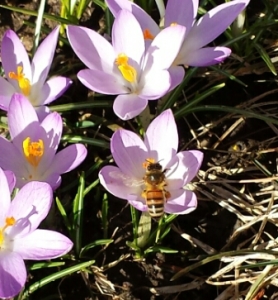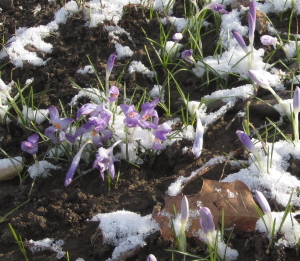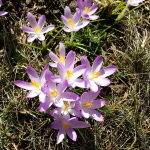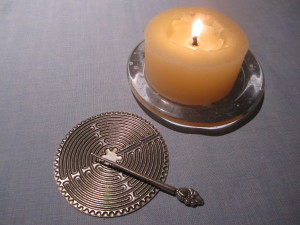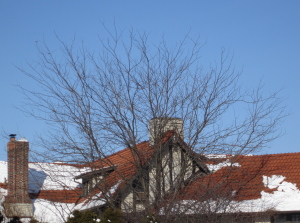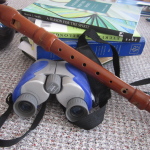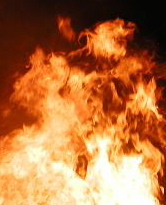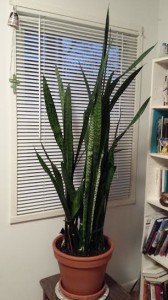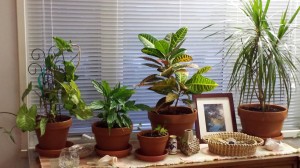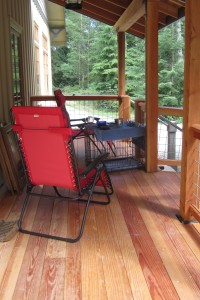
PHOTO: Mary van Balen
The day is perfect. I’m sitting with a friend on the porch of her beautiful home in the woods on Whidbey Island. Cool air blows by and sunlight plays on the branches of firs, cedars, and hemlocks. Chestnut backed chickadees and black headed juncos fly in and out of the feeder, and a woodpecker calls like a squeaky dog-toy from the woods. I’ve just finished drinking a large glass of watermelon aqua frescas when the feeling rises: Guilt. I should be doing something. I could write in my journal, make a sketch of the Douglas Fir, cedar, and hemlock needles so I can remember and identify them. I could read or compose a blog. I have an article to edit.
But all I want to do is sit, look, and breathe in pine-scented salty air. My friend reclines in her favorite red canvas chair, and now and then we comment on the birds, lack of rain, or deer that eat the Marion berry brambles she brought from her former home on Puget Sound. Then we are quiet, each with our own thoughts, or in my case, a combination of no thoughts and guilt.
I finally give myself permission to be still. To be an appreciator of creation, of a friendship that doesn’t require lots of conversation. To be present to the moment without having to record it with camera or pen. I simply sit, and when I think about it, give thanks. It’s luxurious. And Graceful. And perfectly acceptable.
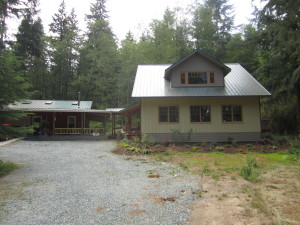
PHOTO: Mary van Balen
Not more than a month ago, I was on the other side of the country, participating in a contemplative residency for Shalem’s Spiritual Guidance Program. Silence and presence wove in and out of every day, reverenced as an essential way of prayer. A way of becoming mindful of the Creator who made all and who resides within each of us. How could such stillness be worthy on retreat, but suspect on this glorious afternoon? How does our culture’s value of “doing” so quickly trump the wisdom of being still? Have you wondered at that when the moment says “rest,” but some inner voice speaks louder: “Not now. No Time. Maybe later?” When the ingrained imperative to “be productive” pulls you away from your heart’s desire, how has your struggle gone?
Today, I wrestled for awhile, then relaxed into spacious silence. A small victory, sweet and refreshing, like the watermelon aqua frescas.


